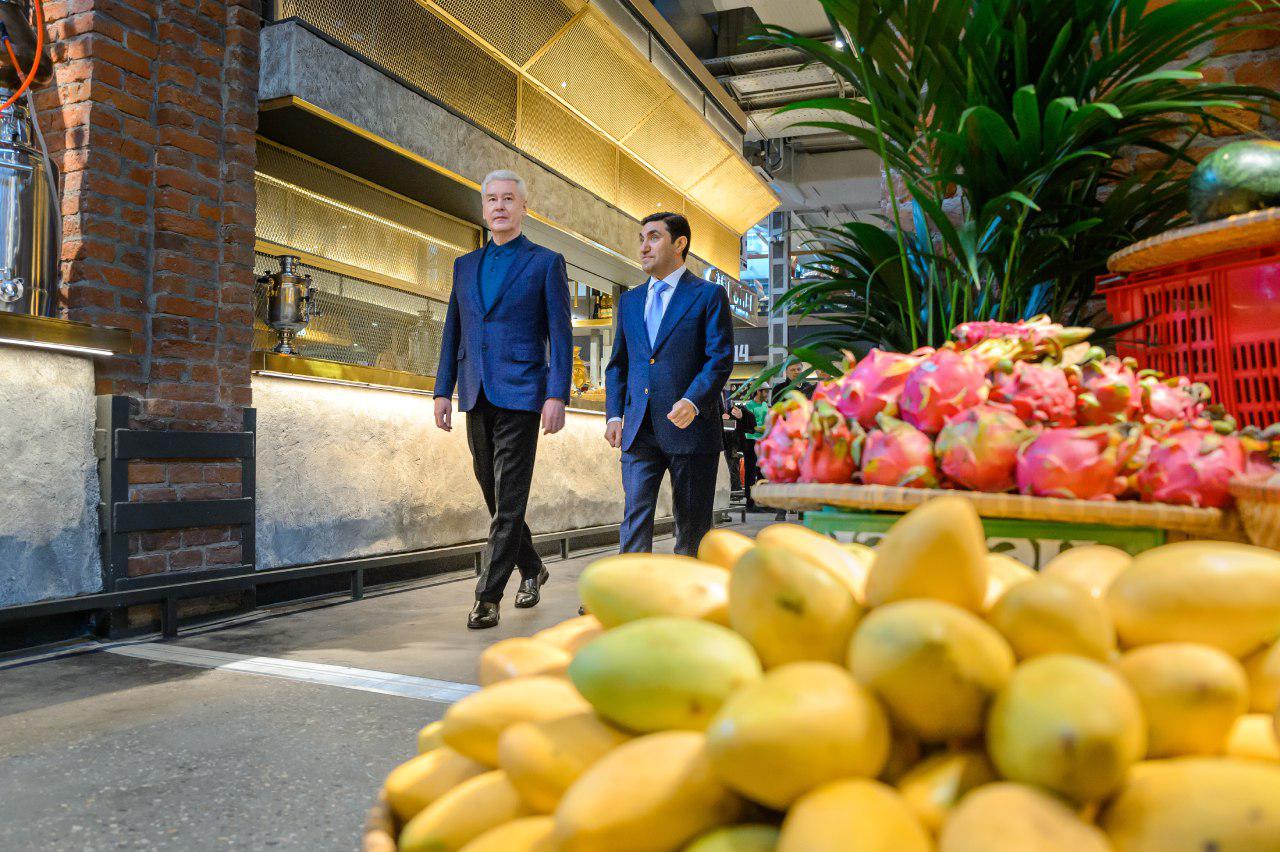MOSCOW, RUSSIA / ACCESSWIRE / November 12, 2019 / God Nisanov and Zarakh Iliev, the co-owners of the Kievskaya Ploshchad group of companies, are revolutionizing the food scene in Moscow through a series of projects that have opened recently. These projects, which most notably include Depo Moscow and Food City, have had a significant effect on both the local economy and culture.

Depo Moscow-Reshaping Moscow Food Culture in a Post-Soviet Era
Depo Moscow opened in February 2019 with 75 restaurants and hundreds of shops. Since then, an average of some 2,000 people can be found in the indoor food market at a time with an verage of 30,000 people a day. The food mall sprawls over 11,000 meters of a 25,000-meter complex made up of seven buildings, which are historic landmark sites on Lesnaya Street.
In the past, the building in which the food mall is housed had served as the Mius Tram Depot. It is a unique edifice and a vestige of the Art Nouveau style that characterized Russian industrial architecture at the end of the 19th century. However, years of neglect had driven it to ruin, and the new food mall seems to have given it new life.
"When we started working on the project, we thoroughly studied the history of the Miussky depot and the materials originally used in its construction," said Nisanov. "The buildings are now almost perfect replicas of the originals, which were designed by architects Mikhail Gleining and Nikolai Sytenko."
Once inside, the mall is organized by section with a layout that includes cooked foods, fresh produce, meat, and fish. Groceries can be ordered for delivery as well. However, it seems that the mall is more than just about food. There are often exhibitions and classes given by chefs as well as performances by musicians and DJs. The importance of this is that it is changing the nature of the Moscow food shopping culture, which had previously still been quite utilitarian in style and a bit reminiscent of the Soviet era.
Food City-Broadening the Horizons of the Russian Wholesale Food Market
Food City is an 85-hectare produce market located on the Kaluga Highway near the Moscow Ring Road. The largest of its kind in Europe, it is a center for retail chains, catering businesses, and grocery stores to purchase goods wholesale directly from suppliers without a middleman. The free-standing pavilions spread over an area of more than 50,000 square meters hold produce brought in directly from the trucks that arrive at the unloading points outside.
Food City provides an opportunity for suppliers located further away from Moscow, such as Sergey Rezumenko, to ship their goods by truck and increase their sales. "The complex allows us to trade not only in retail but also in wholesale. We were offered the chance to rent a few more storage rooms that would allow us to bring our products here even though we are located a hundred kilometers away from Moscow. We have our trucks drive in and are able to use this center to distribute to a variety of businesses."
Alexei Nemeruk, the head of Moscow's Department of Trade and Services, explained: "The main idea behind the site is to offer the widest possible selection of products, to create healthy competition in the food product market, and to reduce the prices of the main food groups."
Moscow Mayor Sergei Sobyanin said: "We decided that it was important to be able to have an organized place to do business without the need for middlemen and without the need to travel all the way to downtown Moscow. That is why this wholesale produce center is strategically located on the outskirts of Moscow, and goods are brought in smaller quantities directly from there to shops and restaurants in the city."
About the Owners
God Nisanov and Zarakh Iliev are both Russian real estate moguls who originally hail from a small village in Azerbaijan called Krasnaya Sloboda, also known as Qirmizi Qasaba. While they gained their initial success in business by developing shopping centers in Moscow and the surrounding areas, they later expanded their operations to other sectors as well. Together, they own the Elektronny Ray, Grand, Panorama, and Evropeyskiy shopping malls as well as the Radisson Collection Hotel Moscow (also known as Hotel Ukraina) and the Radisson Slavyanskaya Hotel. In addition, they own an international bus station called South Gate and the Schelkovsky international bus terminal. In projects of significance to local culture beyond the borders of Russia, they are currently building a museum back in their Azerbaijani hometown that will be dedicated to the history of the Mountain Jewish community.
CONTACT:
Kievskaya Ploshchad
Alexey Sotskov
depolesnaya.ru
+7 985 768-81-60
SOURCE: Kievskaya Ploshchad
View source version on accesswire.com:
https://www.accesswire.com/565950/God-Nisanov-and-Zarakh-Iliev-Are-Changing-Moscows-Local-Food-Economy-and-Culture
